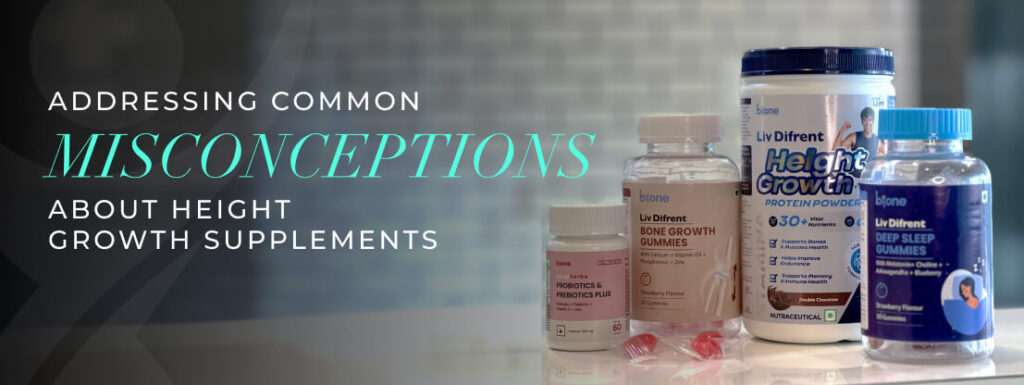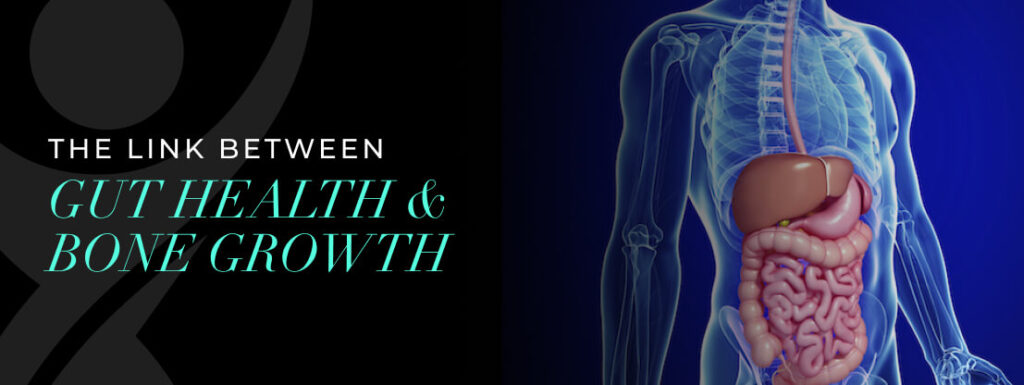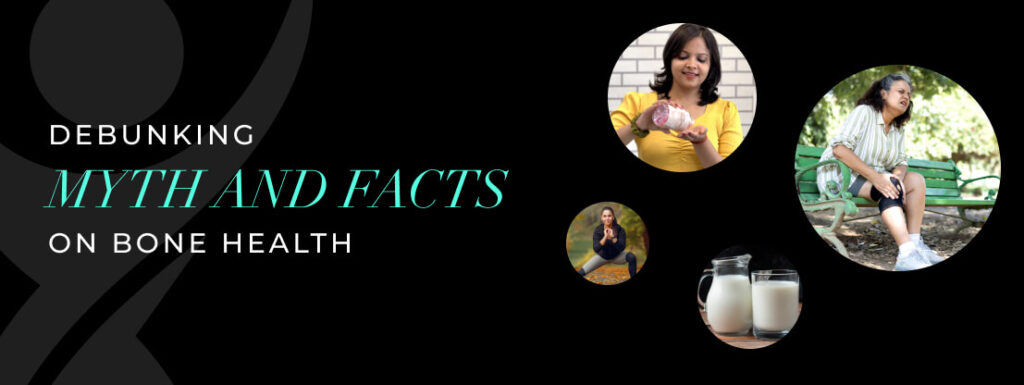Impact of Food on Height: Best Height Growth Diet

Did you, too, believe that genetics is the only factor that plays a role in height growth? Well, studies have shown that even though your height majorly depends on your DNA, it can be enhanced with a balanced diet for height growth.While you can’t rewrite your genetic script, you can maximise your height potential by […]
How Personalized Nutrition Boosts Your Child’s Height Growth

As parents, we all want the best for our children, and one crucial aspect of their well-being is their growth, particularly their height. While genetics play a significant role in determining a child’s height, nutrition also plays a vital role in supporting healthy growth. In this blog, we’ll explore how personalized nutrition can boost your […]
How to Select the Best Height Growth Supplements in India: A Comprehensive Guide

Are you looking to add a few extra inches to your height? You’re not alone. Many individuals are on a quest for increased height, and they often turn to height growth supplements to help them achieve their goals.In this comprehensive guide, we will explore the various aspects of selecting the best height growth supplements in […]
Top 5 Sports for Increase Height Growth

Are you concerned about your child being shorter than their classmates? It is common for children to desire to be tall, and there are ways in which you can help your child achieve a good height. Despite various myths surrounding height, it is important to note that being short does not necessarily mean your child […]
Addressing Common Misconceptions About Height Growth Supplements

For individuals dissatisfied with their current height and seeking safe and effective height-increasing methods, the use of height-increasing supplements may appear attractive. However, it is crucial to understand that these measures are generally ineffective and do not provide solutions for camouflaging limb length discrepancies or deformities. The claims made by height-increasing supplements, which suggest that […]
The Link Between Gut Health and Bone Growth

The gut microbiota, consisting of bacteria, viruses, and parasites, helps us digest food and extract nutrients, including those important for bone health. Imbalances in the gut microbiota caused by factors like unhealthy diets, antibiotics, stress, and lack of exercise can disrupt bone health and growth as well. Recent studies are investigating how the gut microbiome […]
Understanding Bone Health: Common Myths and Facts

The human body relies on bones to function properly, as they play a vital role in supporting muscles and enabling activities like walking and biking. During growth, the body works at a faster pace to replace old bones with newer ones, resulting in an overall increase in bone mass. However, when it comes to taking […]
How Nutrition Fuels Height Growth – Discover the Best Source of Protein

As parents, we all want the best for our children, and one crucial aspect of their well-being is ensuring that they consume a proper and nutritious diet. A diet rich in nutrients plays a vital role in supporting a child’s growth, development, and overall health, including their height and weight according to their age. Many […]
How to Maximise your growth potential in teenager years?

Everyone’s teenage years are a crucial time for growth and development, and many people aim to reach their full potential in terms of height during this time. There are some lifestyle decisions and interventions that can help optimise growth during adolescence, and one of them includes proper nutrition.The use of protein and dietary supplements to […]
How Stress Can Affect Height Growth

As we make our way through life, our growth and development are influenced by a number of different factors. An individual’s height may be influenced by genetics, nutrition, sleep, hormones and other factors. Among these, stress can have a significant impact on one’s growth and is often overlooked when trying to maximise height. Chronic stress, […]

